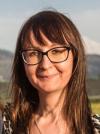References
1. Vahterov, V. P. Vneshkol'noe obrazovanie naroda [Jelektronnyj resurs] / V. P. Vahterov. – Moskva, 1896. – Jelektronnyj istochnik. − URL: http://elib.gnpbu.ru/text/vahterov_vneshkolnoe-obrazovanie-naroda_1896/go,146;fs,0/. − (data obrashhenija 31.08.2018).
2. Venikova, M. S. Narodnye universitety Rossii v nachale HH veka: institucionalizacija i obrazovatel'naja dejatel'nost' : dis. ... kand. ist. nauk / Venikova Marina Sergeevna. – Belgorod, 2017.
3. Deĭch, B. A., Medynskiĭ E. N.: dinamika vzgljadov na teoriju vneshkol'noĭ raboty [Jelektronnyj resurs] / B. A. Dejch. – Jelektron. st. – [Rossija], 2013. URL: https://cyberleninka.ru/article/n/e-n-medynskiy-dinamika-vzglyadov-na-teoriyu-vneshkolnoy-raboty, svobodnyj. – Analog pech. izd. (Sibirskiĭ pedagogicheskiĭ zhurnal, – 2013. – № 5. – S. 165–170). − (data obrashhenija 31.08.2018).
4. Dzhurinskij, A. N. Istorija pedagogiki : ucheb. posobie dlja stud. pedvuzov / A. N. Dzhurinskij. – Moskva : Gumanit. izd. centr VLADOS, 1999.
5. Ignatenko, M. V. Istorija razvitija dopolnitel'nogo obrazovanija detej i podrostkov v Rossii / M. V. Ignatenko // Uchenye zapiski Petrozavodskogo gosudarstvennogo universiteta. – 2013. – № 3. – S. 33−37.
6. Ignatovich, E. V. Anglojazychnye terminy so znacheniem nepreryvnogo obrazovanija: sovremennyj kontekst [Jelektronnyj resurs] / E. V. Ignatovich. – Jelektron. st. – [Rossija], 2013. URL: http://lll21.petrsu.ru/journal/atricle.php?id=1950, svobodnyj. – Analog pech. izd. (Nepreryvnoe obrazovanie: XXI vek. – 2013. – № 1. – C. 102–108). – (data obrashhenija 31.08.2018).
7. Ignatovich, E. V. Istoriko-semanticheskij analiz anglijskogo koncepta nepreryvnogo obrazovanija [Jelektronnyj resurs] / E. V. Ignatovich. Jelektron. st. – [Rossija], 2017. URL: https://lll21.petrsu.ru/journal/article.php?id=3769, svobodnyj. – Analog pech. izd. (Nepreryvnoe obrazovanie: XXI vek. – 2017. – № 4, – C. 115−136). – (data obrashhenija 31.08.2018).
8. Ignatovich, E. V. K obosnovaniju neobhodimosti mezhdisciplinarnyh sopostavitel'nyh issledovanij v oblasti nepreryvnogo obrazovanija / E. V. Ignatovich // Klassicheskij universitet v prostranstve transgranichnosti na Severe Evropy: strategija innovacionnogo razvitija : materialy mezhdunarodnogo foruma. / M-vo obrazovanija i nauki Ros. Federacii, Feder. gos. bjudzhet. obrazovat. uchrezhdenie vyssh. prof. obrazovanija Petrozavod. gos. un-t ; [otv. red. O. Ju. Derbeneva]. – Petrozavodsk, 2014. – S. 155−157.
9. Ignatovich, E. V. Social'no-pedagogicheskaja missija institutov nepreryvnogo obrazovanija [Jelektronnyj resurs] / E. V. Ignatovich. – Jelektron. st. – [Rossija], 2013. URL: http://lll21.petrsu.ru/journal/atricle.php?id=2085, svobodnyj. – Analog pech. izd. (Nepreryvnoe obrazovanie: XXI vek. – 2013. – № 2. – C. 53–63). – (data obrashhenija 31.08.2018).
10. Istorija razvitija obrazovanija vzroslyh v Rossii // Obrazovanie vzroslyh na rubezhe vekov: voprosy metodologii, teorii i praktiki. T. 1 Social'no-jekonomicheskie i pravovye predposylki razvitija obrazovanija vzroslyh. Institut obrazovanija vzroslyh. – Sankt-Peterburg, 2000.
11. Konceptosfera nepreryvnogo obrazovanija. Opyt lingvo-pedagogicheskogo analiza: v 3 ch. / I. A. Kolesnikova, N. S. Barymova, M. S. Gvozdeva, E. V. Ignatovich, I. A. Kotjurova, I. V. Kreneva, S. R. Nedbajlik, L. A. Nechaeva, E. I. Sokolova, N. I. Tokko; pod nauch. ruk. I. A. Kolesnikovoj]. – Petrozavodsk : Karelija, 2016. – 137 s.
12. Medynskiĭ, E. N. Vneshkol'noe obrazovanie, ego znachenie, organizacija i tehnika / E. N. Medynskij. – Sankt-Peterburg : Izd. avt., 1913. − [4], IV, 249 s.
13. Morozova, N. A. Rossijskoe dopolnitel'noe obrazovanie kak mnogourovnevaja sistema: razvitie i stanovlenie : avtoref. dis. ... d-ra ped. nauk : 13.00.01 / Nonna Antonovna Morozova ; Feder. gos. bjudzhet. obrazovat. uchrezhdenie vyssh. prof. obrazovanija «Moskovskij institut stali i splavov» (federal'nyj universitet), Issledovatel'skij centr problem kachestva podgotovki specialistov. – Moskva, 2003.
14. Trojnickij, A. G. Krepostnoe naselenie v Rossii po 10-j narodnoj perepisi : statisticheskoe issledovanie / A. G. Trojnickij. – Sankt-Peterburg, 1861.
15. Chekov, O. M. Issledovanie problem vneshkol'nogo obrazovanija v dorevoljucionnoj Rossii / O. M. Chekov // Izvestija Samarskogo nauchnogo centra RAN: Special'nyj vypusk «Aktual'nye problemy gumanitarnyh nauk». – 2003. – Sentjabr'. – S. 36−45.
16. Cobban, A. B. The medieval universities: Their development and organization. – London : Methuen & Co. Ltd, 1975.
17. Jean-Baptiste Michel, Yuan Kui Shen, Aviva Presser Aiden, Adrian Veres, Matthew K. Gray, William Brockman, The Google Books Team, Joseph P. Pickett, Dale Hoiberg, Dan Clancy, Peter Norvig, Jon Orwant, Steven Pinker, Martin A. Nowak, and Erez Lieberman Aiden. Quantitative Analysis of Culture Using Millions of Digitized Books. Science (Published online ahead of print: 12.16.2010).












